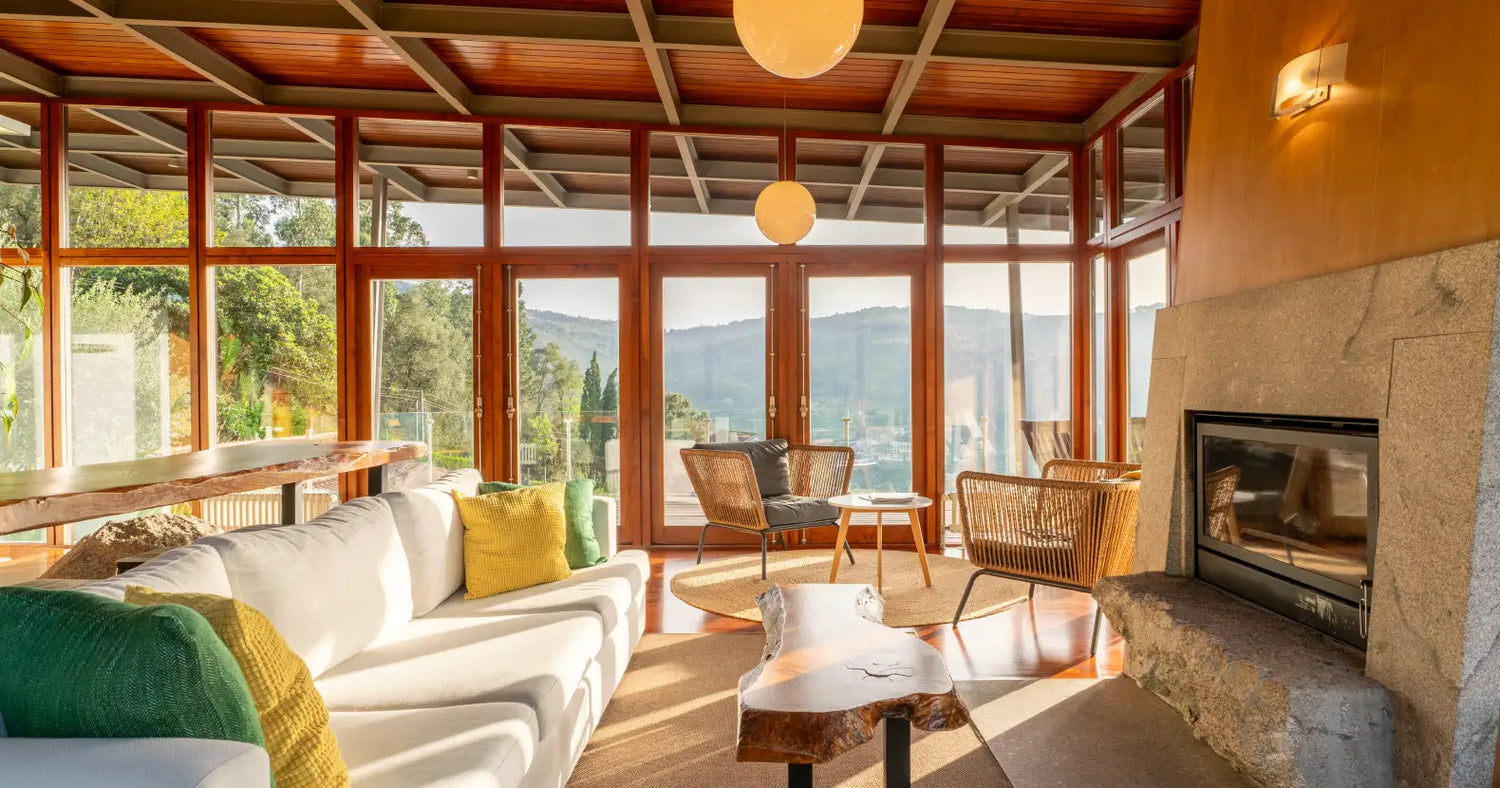Published on October 23, 2024, in Diário da República, Decree-Law nº76/2024 implements the measures presented by the new government of the “Construir Portugal” program, which results in the lifting of restrictions imposed on vacation rentals with the “Mais Habitação” program.”
This new legislation, among other things, dictates the end of licenses' non-transferability and expiry or the prohibition of issuing new permits. It also limits condominiums' powers to restrict or cancel vacation rental licenses in residential buildings.
In this article, we will present all these changes, which came into force on November 1st, and explain in simple terms what they mean for vacation rental owners.
What changes in vacation rentals with the new legislation?
Regulatory power returns to municipalities
Municipalities can approve an “administrative regulation” instead of national legislation to control “short-term rental activity in the respective territory.”
Municipalities with more than 1000 vacation rentals registered will have one year from the day they reach that number to decide whether to create this regulation. During this period, municipalities may suspend new licenses.
Also, upon reaching the mark of 1000 vacation rentals registered, municipalities can appoint a “short-term rental provider” to support the city in “managing disputes between residents, owners of short-term rental establishments and condominium owners or third parties.” And with responsibility for issuing recommendations and “approving and implementing good practice guides on the operation of the activity.”
Creation of Containment and Sustainable Growth Areas
To “preserve the social reality of neighbourhoods and places,” municipalities will be able to “impose limits on the number of new short-term rental registrations,” creating areas of containment and sustainable growth by parishes or unions of parishes, whether as a whole or in certain regions. These areas will be designed considering “housing and environmental pressure.”
These two areas must be re-evaluated at least every three years, and the respective conclusions must be communicated to Turismo de Portugal.
Containment Areas
Containment areas are defined as places with “an overload of accommodation establishments, which may justify restrictions on the installation of new establishments.”
What can municipalities decide on in these areas?
_The non-authorization of new vacation rentals for properties that have been the subject of a residential lease contract in the two years before registration;
_Limits on the number of short-term rentals concerning the total number of existing housing units;
_Exceptions in which new licenses are admitted in these areas;
_Conditions and limits for new permits, in particular regarding their duration and allocation rules;
_Limit the transferability of new licenses in houses and apartments, protecting cases of inheritance rights, free transfer between spouses, ascendants, or descendants, and distribution of assets after divorce or dissolution of a stable union.
Sustainable Growth Areas
Sustainable growth areas are created to “prevent an overload situation with undesirable effects on neighborhoods and places,” which justifies “special monitoring and monitoring measures.” Municipalities may establish additional requirements for new short-term rental licenses in these zones, such as:
_The non-authorization of new vacation rentals for properties that have been the subject of a residential lease contract in the two years before registration;
_Limitation of new licenses to properties in an average or higher state of conservation, certified by a senior technician and verified in a municipal inspection;
_Limitation of new licenses to properties with an energy efficiency level equal to or greater than D, certified by the competent body for this;
_Maintaining a certain proportion between housing units and short-term rental units;
_Create exceptions for pre-1951 properties.
Short-term rental licenses are transferable again.
The old Article 7 stipulated that short-term rental licenses were “personal and non-transferable,” except in the case of succession due to death.
With this new revision, these points have been repealed, and vacation rental licenses are once again transferable, individually or corporately owned.
You do not need to renew your license
The article about the duration and expiry of short-term rental licenses was also revoked. They no longer last for some time, and renewing them is unnecessary.
The more straightforward prior communication process
One of the first steps in licensing a vacation rental is prior communication to City Hall, which can be carried out on the Public Services Portal (see our guide to opening a vacation rental).
This process has been simplified by eliminating the need to submit some documents, and some deadlines for responding to the municipality's communication have also been changed.
Exemption from the seasonality period
If the short-term rental unit is registered in the owner's own or permanent residence, the seasonality period need not be clarified.
Exemption from condominium authorization for the installation of short-term rental
With the revocation of the Mais Habitação program, a declaration from the condominium authorizing the opening of vacation rentals in a residential building is no longer necessary.
However, authorization from the condominium remains necessary in the following cases:
_Opening of a hostel, when located in buildings subject to the horizontal property regime;
_The prohibition on installing vacation rentals is stipulated in the condominium's regulations and approved by a majority representing two-thirds of the assembly's constituents.
The deadline for responding to prior communication was extended
City Hall's deadlines for responding to requests for short-term rental licenses have been increased from 10 to 60 days, or 90 days if the vacation rental is in a containment area.
Increased inspection deadlines
Municipalities' inspection periods were also extended from 30 to 60 days, or 90 days if the vacation rental is in a containment area.
Maximum accommodation capacity
The new legislation updates the maximum capacity of all types of local accommodation from 30 to 27 guests, maintaining the limit of 2 guests per room (or living room), but with the possibility of installing convertible or additional beds as long as they do not exceed 50% of the number of fixed beds.
New public information about accommodations
Turismo de Portugal now includes information on the expiry date of mandatory local accommodation insurance in the National Register.
The information owners or managers of vacation rentals must provide to the condominium has also been updated. In addition to telephone contact, they must also provide an email address.
New situations for canceling licenses
In addition to the existing rules for canceling the short-term rental license, the following situations have been added:
_The lack of valid mandatory insurance or the failure to send information and proof;
_Suppose you wish to install a vacation rental in a containment area on a property that has been the subject of a permanent housing lease for two years before submitting the prior notice request. In that case, it violates the applicable municipal ordinance.
Condominiums can also, in an organized manner, request the cancellation of the license from City Hall, provided that at least half of the building's tenants oppose the exercise of the activity on the grounds of “repeated and proven practice of acts that disturb the normal use of the building, as well as acts that cause nuisance and affect the rest of condominium owners.”
In this case, the City Hall has 60 days to begin a process of “acceptance of commitments and conditions” to archive the procedure, accompanied by the municipal vacation rental provider. If the commitment is unfeasible, the license will be canceled.
Summary Table
| You can obtain a vacation rental license again: the ban on the Mais Habitação program has been revoked, and the power has passed to the municipalities, which are the entities that will decide the capacity to issue or prohibit new licenses and the definition of areas of containment and sustainable growth. |
| Transfer of licenses: Vacation Rental licenses are again transferable, whether owned by an individual or a business. |
| Elimination of expiry: Short-term rental licenses no longer have a temporal duration, and renewing them is unnecessary. |
| Condominium loses veto powers: You no longer need permission from the condominium to request a short-term rental license if there is no regulation expressly prohibiting the exercise of the activity. |


